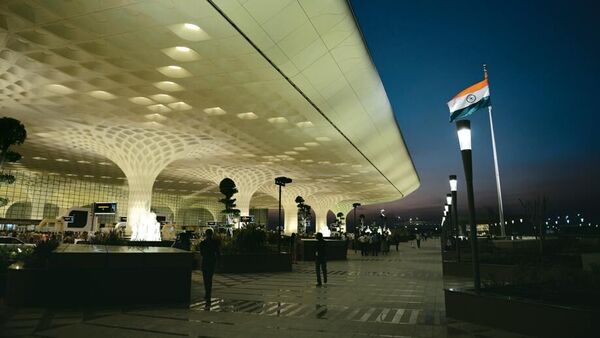New Delhi: Indian companies are embracing environmentally conscious practices, including choosing flights with low emissions, eco-friendly hotels, and electric vehicles for daily commutes as they pursue sustainable growth and net-zero carbon emissions, industry executives said.
“Increasingly, corporates are asking what my carbon footprint on each flight is. We are showing them the carbon footprint that they spend on an IndiGo, a Vistara, SpiceJet or any other airline. There is a surge in queries, especially from sectors such as information technology-enabled services, consultancy firms, manufacturing, banks, and financial institutions,” said Sabina Chopra, co-founder and chief operating officer for corporate travel, and head industry relations, Yatra.com.
A search on the travel portal on a narrow-body (Airbus 320 or Boeing 737) flight between Delhi and Mumbai reveals GoFIRST is the most environment friendly—GoFirst emits 129 kg of carbon dioxide as compared to IndiGo’s 136 kg and Akasa Air at 142 kg per flight. Full-service carriers Vistara and Air India—the preferred choice for corporates—emit in the range of 136-142 kg of carbon dioxide for the same flight, a search on Yatra.com’s website shows. SpiceJet has a carbon footprint of 164 kg per flight.
The travel portals have seen an increase in conversations around sustainability and awareness about carbon footprint since the covid pandemic, but it is only since this year that large conglomerates have started engaging with their travel booking partners to implement plans regarding reduction in carbon emissions, two people aware of the development said.
In March, travel services company Thomas Cook (India) Ltd and its group company SOTC Travel announced a partnership with LTIMindtree, to launch “Green Carpet”—a platform to monitor and manage business travel emissions.
This comes against the backdrop of the markets regulator mandating the top 1,000 listed companies in India by market capitalization to make filings as per the Business Responsibility and Sustainability Reporting (BRSR) from FY23.
“More than 50% of these are already our existing customers. But the idea is to start with 50% of the 1,000 companies and then take it to the other companies which are there. One of our clients, a conglomerate, wants to be able to capture, benchmark and report Scope 1, Scope 2, and Scope 3 emissions to Sebi (Securities and Exchange Board of India). We are helping companies in reporting that in an integrated manner. The L&T Group of companies, Mindtree, and some of our Fairfax companies in India, which have envisaged interest, will be on this platform,” said Sanjay Tugnait, president and chief executive officer of Fairfax Financial.
Essentially, Scope 1 and 2 are those emissions that are directly or indirectly owned or controlled by a company, whereas Scope 3 emissions are a consequence of the activities of the company but occur from sources not owned or controlled by it.
As a result, companies are also watching the emissions emitted during the carriage of business parcels and deliveries.
“Nobody was asking about it five years back. Some of them are now talking about it,” said R.S. Subramanian, senior vice president of South Asia at logistics company DHL Express.
The company took the delivery of the first Tata Motors Ace electric vehicle, and three of these vehicles are currently on trial at its Pune facility. It is also chasing electric vehicle manufacturers to build suitable air-conditioned vehicles for courier carriage.
“The traditional thought used to be offset; I am going to burn carbon; I will go plant 10 trees. That’s out now. The real story is in-setting, which is to say, how do you reduce the carbon footprint and what action can you take and what costs? I cannot bear that cost as a service provider unless the business that is asking me to carry the shipment is willing to take the cost. So, I am telling them to let’s partner, and we will build a carbon footprint that is good for both of us,” Subramanian said.
While corporates take the lead towards sustainability primarily on account of global and national guidelines and policies, even individuals have shown a similar trend, albeit in a small percentage for now.
“Almost 40% of the travellers are saying that when planning summer travel this year, sustainability is going to be key criteria for the destination or the airline they decide to choose or the hotel or resort they go ahead with. We are also building products such as less carbon dioxide sorter. We also have an index for mindful travellers,” said Tarun Tahiliani, India country manager, Kayak.
Download The Mint News App to get Daily Market Updates & Live Business News.
More
Less
#Companies #count #carbon #travel #hotels
